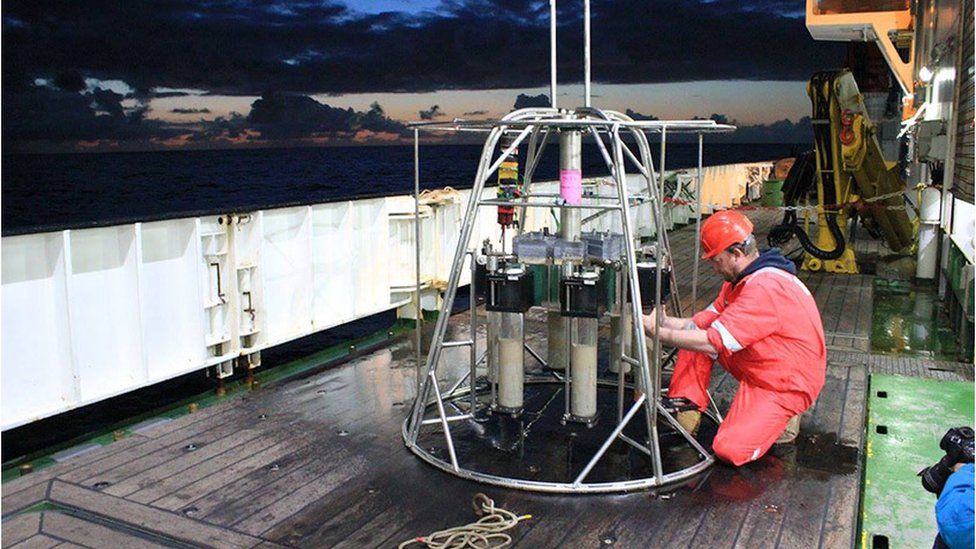Microplastics found in 150-year-old ocean sediment
- Published

Tiny fragments of plastic have been found buried in seabed sediment more than 150 years old.
Scientists discovered the microplastics in core samples taken 2,200m (7,218ft) below the surface of the North Atlantic.
The discovery at the Rockall Trough off the Western Isles at first mystified scientists.
But in a new research paper they suggest the plastic dropped down burrows made by deep-sea worms.
Other fragments may have reached lower layers falling through "pores" - gaps in the grains of sediment.
The Scottish Association for Marine Science (Sams) in Oban and University of the West of Scotland, who worked on the study, found plastic buried 10cm (3in) down into the seabed.
Spoon worms
Dr Winnie Courtene-Jones, who carried out the sampling at Sams, said: "The layers of sediment down to around 4cm were around 150 years old, so based on that discovery alone, plastics were in the sediment long before they were mass produced on land.
"It just didn't add up."
Dr Courtene-Jones along with other members of the research team suggest pores and also burrows made by creatures such as spoon worms allowed the plastic to sink into the seabed.
The scientist, who is now part of the all-women eXXpedition marine plastic pollution project, had previously published research on microplastics being ingested by animals living in the Rockall Trough, including starfish.
- Published22 August 2017